Fintech App Development 101
Contents
Technologies integrated finance are a crucial part of our hustle and bustle life. With up-to-date and advanced features, fintech apps help us save more time and enjoy diversified functionalities.
Imagine without digital fintech app services, Covid-19 pandemic could seriously impacted our daily lives and individuals can not handle their financial needs.
Therefore, this article will help you to clearly understand the importance of fintech services and how to create a fintech app.
What is A Fintech App?
Fintech is a short term of financial technology. A fintech app refers to an app that helps users easily approach and utilize financial services. For example, individuals, businessmen, companies, bankers, organizations can access and manage all of their financial works in just an app.
As it is an all-in-one financial help, building a fintech app requires in-depth research and labor-intensive process to basically create a completed software. This operation will take more effort, especially when you want to make an outstanding and distinctive fintech app.
Nevertheless, if you have a solid background and strategic plan, you will be able to manage and build your own fintech app.
How To Develop A Fintech App?
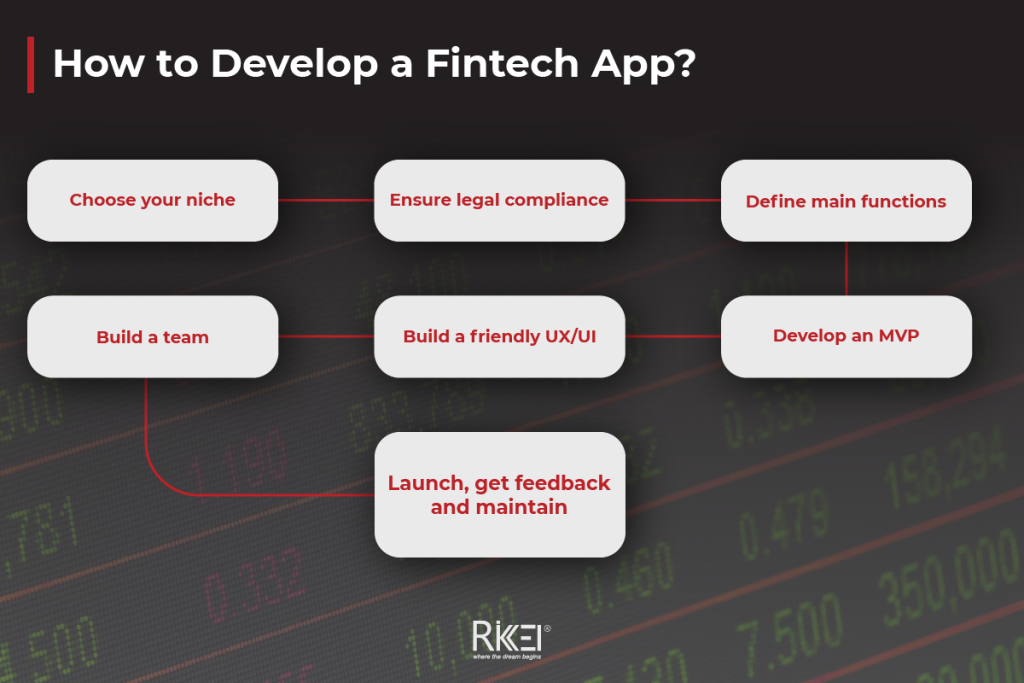
Fintech app development is a complex process and needs many resources to fully build it . To understand more about this operation, let’s look at these main steps below:
1. Choose your fintech niche
First and foremost, finding out what kind of sphere you want to build for your fintech app is a crucial step. There is a vast amount of fields you could focus on, such as:
- P2P Payment
- Invest management
- Insurance
- Stock and bond
- Blockchain-related services
- Lending and borrowing platform
- Non-custodial wallet
The more unique the niche is, the more market segmentation that you can potentially gain. If you want to be more competitive, your fintech app should have innovative technology and meet your users’ demand.
Take on-custodial wallets using blockchain technology as a specific example, by making the transactions to be more decentralized, secured and transparent, users’ data will be ensured and private. There are too many popular technologies for fintech app which are available in the market so you have to find your specific market with innovative solutions.
Read more: Best Programming Languages for Finance & Fintech
2. Ensure legal compliance
There are a large amount of financial compliance which are complied when operating a fintech app like: KYC (Know Your Customer) or AML (Anti Money Laundering). Moreover, there are also many privacy laws that you have to comply with such as: PIA, GDPR, CCPA and LGPD. These requirements are to protect users’ privacy data and legally ensure your operation.
Once you decide your niche market, make sure that you need to comprehend all the financial policies. Build fintech apps can be a complex process, but necessary to avoid any legal trouble in long-term development.
Read more: Cybersecurity in Fintech: Standards & Solutions for Safe System
3. Define main functions
Technology integrated finance is always a challenging combination for developers. By determining your target audience and sphere, you can create fundamental features based on an existing one but more friendly and easier to use for users. These general features include:
- Secure log-in and sign-in (using face ID, fingerprint security and 2 factor-authentication)
- Comprehensive instructions and friendly notifications
- Spending and saving management system
- Basic finance-related services (money transfer, deposit and withdrawal)
- Digital payment methods
- AI assistant or smart chat bot
Not only how to integrate all features but developers also have to deal with the monetization model. The most common way is via purchasing premium versions with advanced features for specific use cases. Moreover, you can offer advertising, PR or sponsor methods to monetize. After all, ensure it suits your overall app’s functions and not disrupt users’ experience.
4. Develop an MVP
Minimum viable product (MVP) is an early stage of your fintech app development with minimum features. With MVP, you can test and audit your product without spending loads of resources. However, the functionalities of MVP products must be sufficient so that your users can test and review your work.
Fully developing an MVP at first helps your team to have more considerations before the final version. Moreover, this undertaking can minimize the risk and unfortunate factor in the process when you build fintech appa.
Read more: What is MVP in Software Development? [Detailed Explaining]
5. Build a friendly UX/UI design
Finance is a complex major so building a minimal and friendly UX/UI helps your customers familiarize with fintech app. A basic fintech app requires speed, security and effectiveness so consider these factors to create your own compelling interface.
For example, if your decision is to build an investing app, make sure that the charts and indicators are as detailed as possible. Also, the tone, color and font should be carefully considered to create a better users’ experience. In addition, make important buttons or features recognizable so that it will gain users’ attention.
6. Build a team
Here are some crucial position that required in a development team of fintech app:
- Project manager
- Product manager
- Back-end developer
- Front-end developer
- Business analyst
- UI/UX Designer
- QA specialist
- Tester
There are options for you to have a full team for your fintech app’s operation like above by hiring outsourcing companies, freelancers or building in-house teams.
Outsourcing company is a better decision as it is money and time-saving compared to in-house or freelancer, but you have to pay attention to the company’s experience and their latest projects. Building a dedicated team is not easy and depends on many other factors such as: hourly wages, level, major and vision of every individual in the team.
See more: Software Development Team Structure: Roles and Responsibilities
7. Launch, get feedback and maintain
After launching the fintech app, the development process is just at the beginning. Your team needs to conduct a vast amount of testing from feedback and reviews of early users. Maintenance and app improvements are keys to outperform your competitors. Some following KPIs could help your fintech team clearly check the development:Hơ
- Total number of users that sign-up
- Daily and monthly active users
- Average time to make transactions
- Average time to second session
- Average number of days to first action
- The most favorite feature
- Push notification actions
- Daily app launches
- Number of unresponsive gestures (taps, swipes)
Moreover, security is an inevitable function when you build fintech apps so your team needs to always confirm that the user’s data is highly protected.
Fintech App Development Cost
The sphere and features that fintech apps focus on will mostly determine fintech app development cost. However, there are still many factors that affect the final cost of fintech app development.
1. Type of fintech app
The more complexity of a fintech app type, the more money you have to spend to build it. Therefore, you will cost a fortune when developing a banking app based on its functions and complicated model.
Here is the comparison about fintech app development cost among types of fintech apps with the estimated hourly wage being $50.
| Type of app | Development time | Estimated cost |
| Banking app | 3,200 | 160,000 |
| Insurance app | 2,800 | 140,000 |
| Consumer finance | 2,600 | 130,000 |
| Investment app | 2,500 | 125,000 |
| Lending app | 2,300 | 120,000 |
2. Team size
A software development company will provide an appropriate team depending on the complexity and scalability of your goals. Therefore, as a startup, you need a wide range of teams for MVP development. Let’s have a comparison of when you finish building your fintech app in 1,000 hours.
| Type of team | Estimated cost |
| Freelancer | $30,000 |
| In-house | $90,000 |
| Outsource company | $40,000 |
3. Location
The final cost will also highly change based on the location that you want to develop your fintech app. Different places in the world will have different minimum cost requirements to build a software.
Below is a graph illustrating an average cost to build a fintech app based on 5 areas.
| Type of app | Central/Northern Europe | Western Europe | North America | Asia | Oceanica |
| Banking app | 160,000 | 245,000 | 350,000 | 140,000 | 300,000 |
| Insurance app | 140,000 | 91,000 | 130,000 | 55,000 | 120,000 |
| Consumer finance | 130,000 | 240,000 | 340,000 | 100,000 | 300,000 |
| Investment app | 125,000 | 140,000 | 200,000 | 80,000 | 180,000 |
| Lending app | 120,000 | 155,000 | 220,000 | 88,000 | 200,000 |
Asia is a compelling area as the fintech app development cost to fully build a fintech app is much more competitive than other areas. Moreover, you can find more qualified financial services development in this area with a dedicated team and experienced portfolio.
Fintech App Ideas
Finance with technology is a various range of ideas that you need to make an in-depth research and clear decision for your fintech app. Here are some fintech app ideas that can inspire you in your process.
Read more: Top 25 Best Personal Finance Apps: Banking, Investing, & Managing Tools
1. Digital Banking Apps
It is true that building a digital banking app will cost a fortune as its features and complication in an app. With internet banking app, bankers and users will gain more convenience without going to the bank directly.
Digital banking app can allow their clients to check their transaction history, manage their deposit and make transfers. Specially, users can make a 24/7 transaction in just a few simple steps, everything is available via digital means.
Revolut is a good instance when this banking app focuses on worldwide spendings. You can transfer money around the world with no commissions. You can even buy cryptocurrency, gold and control your transactions easily.
2. P2P Payment Apps
Peer-to-peer payment apps help users not only make payments in stores, but it can also help transfer money directly to individuals or enterprises worldwide. These apps also provide users with financial-related services and make our purchasing process more convenient.
Apps such as Apple Cash Pay, Google Pay, Paypal, Venmo are prominent instances for P2P payment. They use the latest technology like Face ID, fingerprint authentication and 2-factor authentication to secure any transactions from users.
3. Investment Apps
Digital investment platforms allow users to do research and invest in diversified financial assets including: stock, bond, crypto and ETF… Investment apps recently have better performance when integrating with advanced technology to improve users’ investment.
A vast amount of people find it hard to make an investment as the process and knowledge are too complicated. This is a reason why we have seen so many investment apps nowadays. Therefore, developing this app will make people accessible to invest and you will have a potential market for it.
Acorn, Robinhood and CBDC are outstanding fintech app ideas to make your investment easily and globally.
4. Insurance Apps
Instead of normally calling an insurance app which is quite old-fashion, people nowadays often use the new term “Insurtech” standing for “insurance technology”. It helps create and gain efficiency for users in several ways by having quick processes, better saving and frequently updates.
Moreover, there are diversified types of insurance apps such as: claims settlement, sales management, travel insurance, car insurance and insurance brokers. For example, each of these insurance apps like PolicyCenter, Lifefit or Britecore has different functionalities and focus on the main demand of users.
5. Budget Management Apps
This type of app is used to manage users’ budget and helps them to plan their spending monthly or yearly. Mint, Moneylion or Finch are the best budget management apps that can be your reference if you want to build a new one.
6. Blockchain Apps
Blockchain apps which are using blockchain technology to build an application is one of the best fintech app ideas. Applications using blockchain help users to easily approach a decentralized finance ecosystem. With blockchain apps like Binance, Huobi, OKX or Kucoin, people can purchase and trade many crypto assets like Bitcoin, Ethereum, Binance Coin and even NFT via P2P methods and are highly protected.
Fintech App Requirements
Integrating all the features of finance and technology in just an app is always a complicated process that developers can be overwhelmed and frustrated. Here are some requirements and challenges that you need to pay attention to in the overall fintech app development.
1. Cybersecurity
Security plays a crucial role to the success of any application, this factor is more paramount when building a fintech app. Just imagine that if a leak of users private data happens, it will definitely ruin all of your dedicated work building the app. Therefore, just a simple mistake can mark the end to your startup.
Here are some main features that you can focus on when ensuring your fintech app’s privacy.
- 2-factor authentication
- Biometric security
- Registration via phone number
- Dynamic CVV2 codes
Moreover, fintech app is also strictly regulated so if you want to deeply care about the security, then you have to comply with obligated regulation such as PCI-DSS, PSD2, FCA, and privacy laws like CCPA, GDPR, or PIA.
Meanwhile, here are some common issues that it can possibly screw up your security development
- Writing wrong code
- Trouble with data encryption and decryption
- Scalability problem
Read more: Cybersecurity in Fintech: Standards & Solutions for Safe System
2. Simplicity
With a vast amount of knowledge and information, users can be overloaded if features in your fintech app are confused. Therefore,, while using advanced technology, you also need to make a minimal and user-friendly interface.
Using a confusing fintech app is a bad experience for users. If you want to get user retention and attract more customers, make your fintech app features simple and friendly to use so that it will have lots of long-term users.
3. Technical integration
Big data and Artificial Intelligence are always the core value of any fintech projects. Moreover, in a fierce market, entrepreneurs and companies compete by applying advanced technology as blockchain into their product.
By having the latest AI and blockchain technology, your fintech app can attract investors and outperform competitors in bringing efficiency for the process.
Moreover, your fintech app needs to integrate with API. With the API, you can link to other software app and improve the overall cost. For example, having an API can connect your app to bank accounts and make payments when shopping online. You can integrate your app with Paypal or Napas so that users can easily purchase any stuff around the world.
4. User retention
User retention helps your fintech app continuously be used by current users and maintain their activities. This is the challenging task as you need to create more value to users instead of providing the same content and services. Moreover, although having a compelling marketing campaign, the poor product will lead to user retention so let’s focus on your product.
There is no specific formula to win users’ loyalty. However, the most basic step is to do in-depth research with data analysis about users behavior in your fintech app. Moreover, with a great marketing strategy, a fully developed fintech app can retain more existing users with engaging campaigns and services.
Users will be more supportive and become your loyal friends once you accept customer feedback and learn from mistakes.
Fintech App Development Services
Rikkeisoft is an experienced company with competent Banking & Financial Services Industry service such as: UI/UX design; website, mobile app, software development, software integration and managed service.
With more than 10 years in the industry, we have strongly supported our clients in approaching cutting-edge technologies, regulatory requirements using innovative solutions,
Furthermore, with 1,500+ tech engineers and solid IT infrastructures, we can help you cope with digital problems and fintech development. The adoption of latesting technology in Fintech including: blockchain, IoT, AI/Machine learning and Cloud services will make your client outperform competitors with competitive cost.
More From Blog

April 4, 2024
Big Data Performance: Maximize Your Business Value
In today’s data-driven world, organizations are constantly generating and collecting immense amounts of data to understand their customers more deeply. This data, often referred to as “big data,” holds immense potential for organizations to seek opportunities and overcome challenges. But accessing and analyzing big data isn’t enough to have proper strategies; organizations must pay attention to […]

April 4, 2024
How Real-Time Data Analysis Empowers Your Business
In today’s fast-paced business landscape, the ability to quickly make data-driven decisions has become a key differentiator for success. Real-time data analysis, the process of analyzing data as soon as it’s generated, has emerged as a powerful tool to empower business across industries. By leveraging real-time data analysis, organizations can gain timely and actionable insights, […]
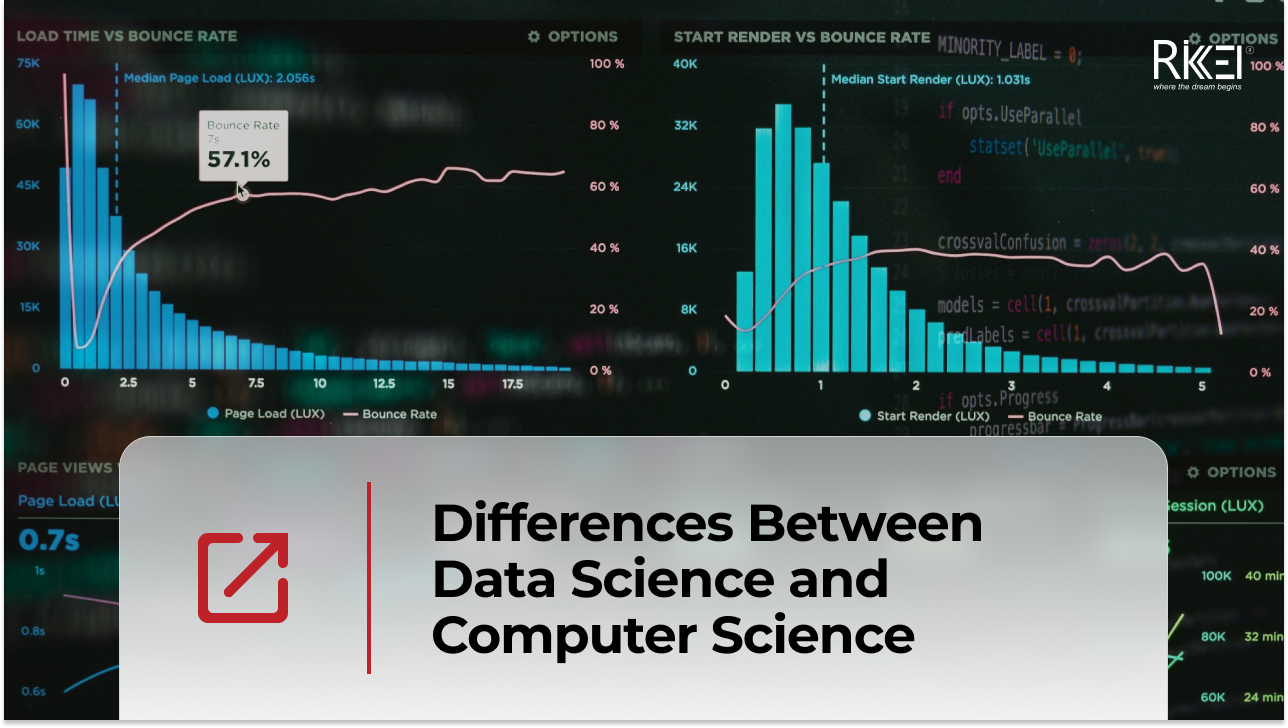
April 4, 2024
Differences Between Data Science and Computer Science
Data Science and Computer Science are distinct fields overlapping in certain areas but have different focuses and objectives. The article below will help you clearly understand the differences and the close connection between the two fields. What is Data Science? Data Science is an interdisciplinary field that combines scientific methods, processes, algorithms, and systems to […]
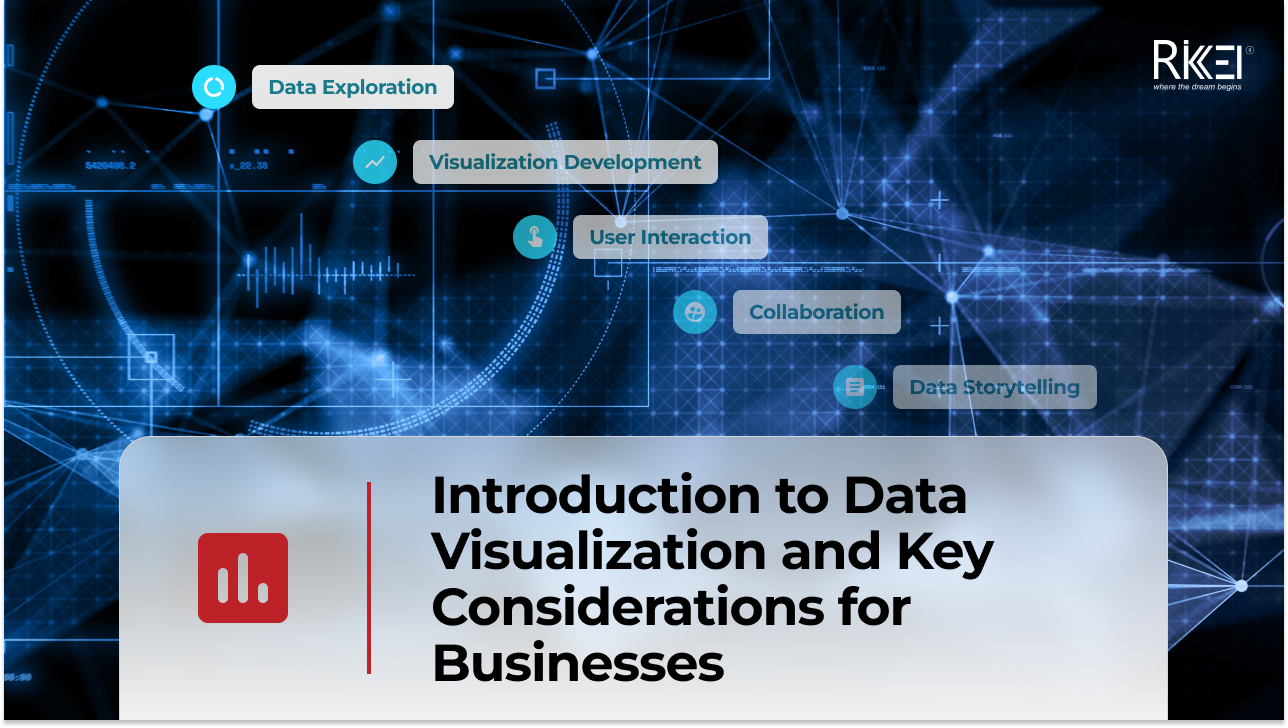
March 28, 2024
Introduction to Data Visualization and Key Considerations for Businesses
In your opinion, what is data visualization? Your main goal is to communicate your recommendations engagingly and effectively, right? To achieve this, let’s immediately explore a method that can represent information with images. What is Data Visualization? Define data visualization and their roles in organizations First, you need to find the answer to the question: […]
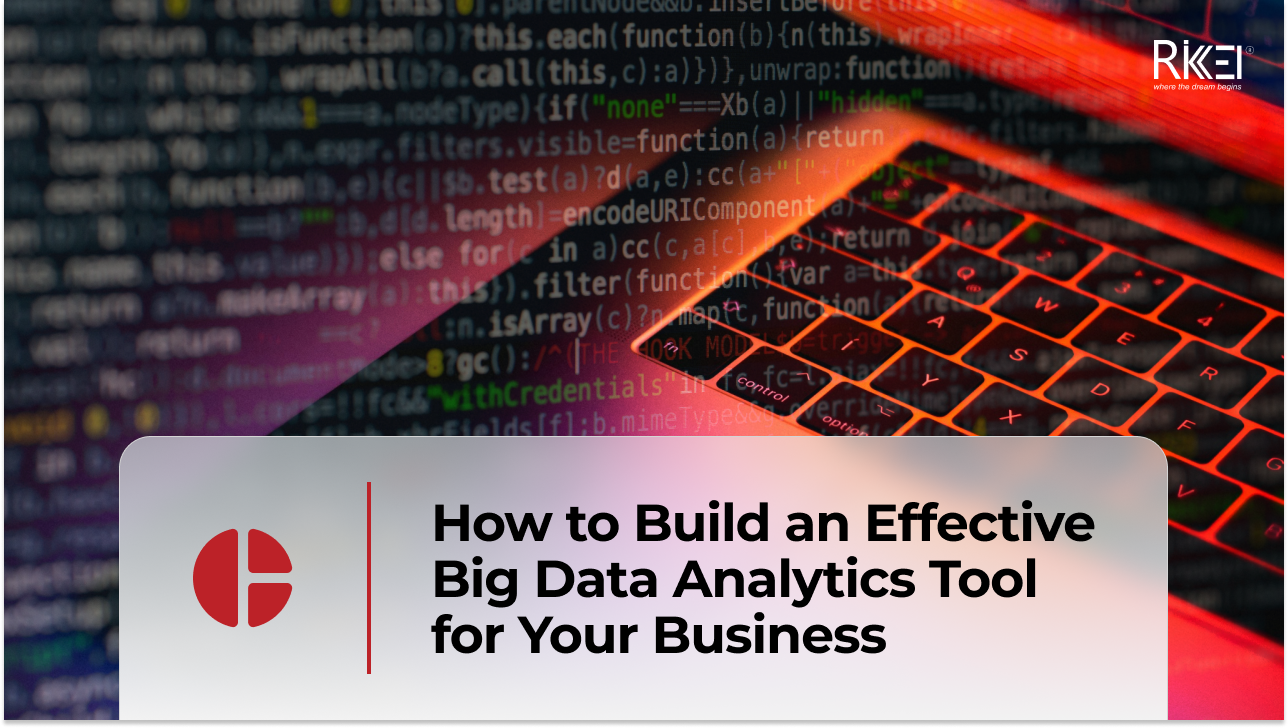
March 21, 2024
How to Build an Effective Big Data Analytics Tool for Your Business
Building an analytics tool for a business brings several significant benefits, especially in today’s business environment where data is becoming larger and more complex. So how to build an effective analysis tool for businesses, follow the article below! Assessing Business Needs Assessing business needs involves understanding the requirements, goals, and challenges of a business or […]
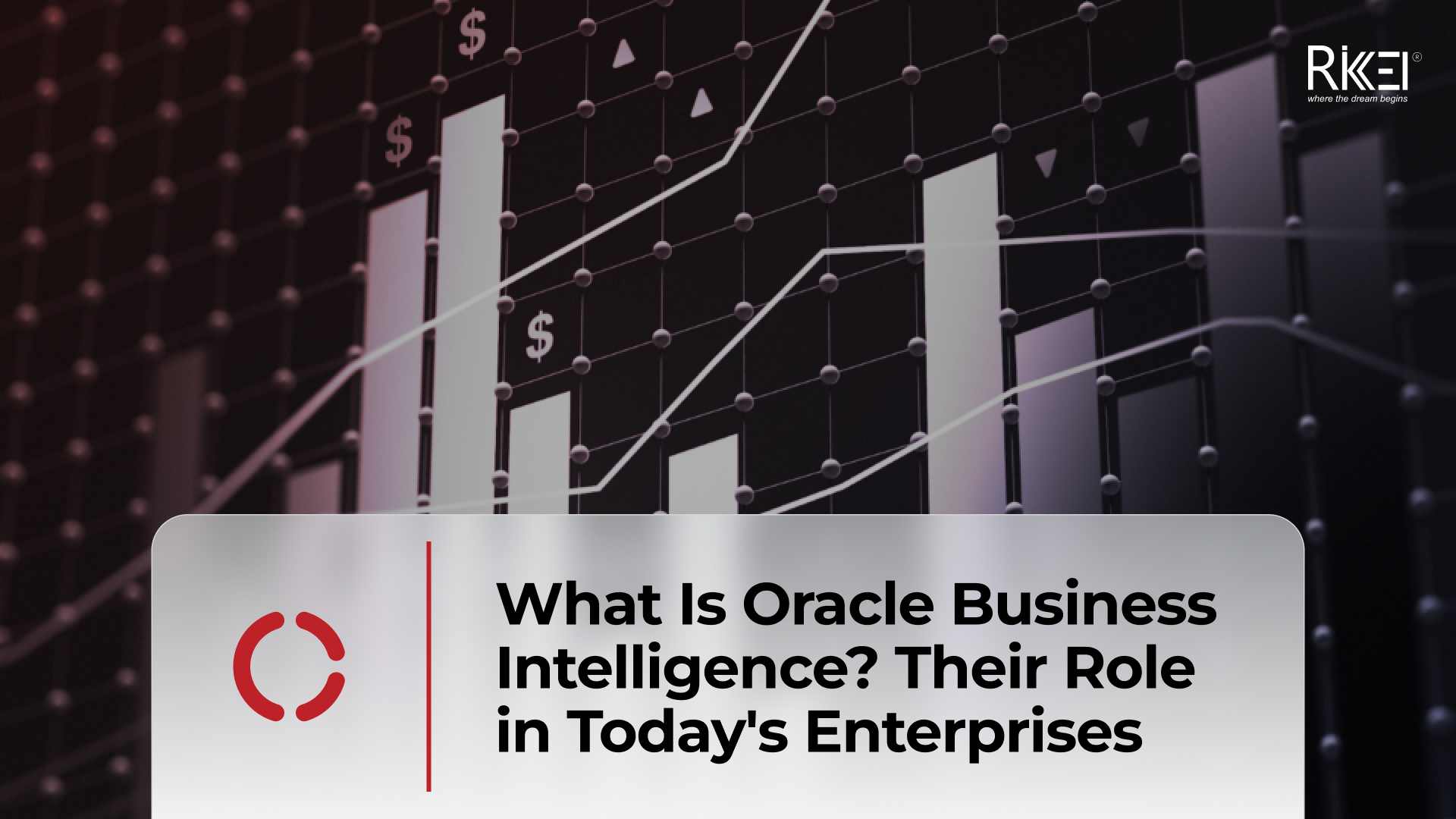
March 14, 2024
What Is Oracle Business Intelligence? Their Role in Today’s Enterprises
Oracle Business Intelligence (BI) refers to a suite of tools, technologies, and applications designed to help organizations collect, analyze and present business data. The primary goal of Oracle BI is to provide actionable insights to support decision-making within an organization. Oracle BI encompasses a range of products that enable users to gather, process and visualize […]

